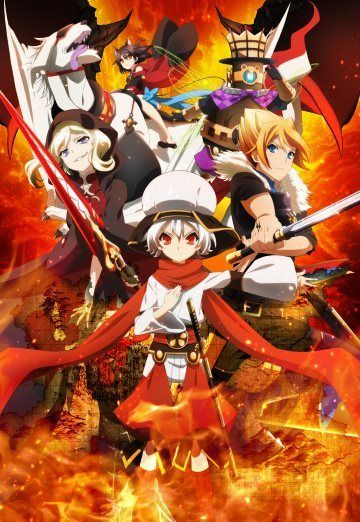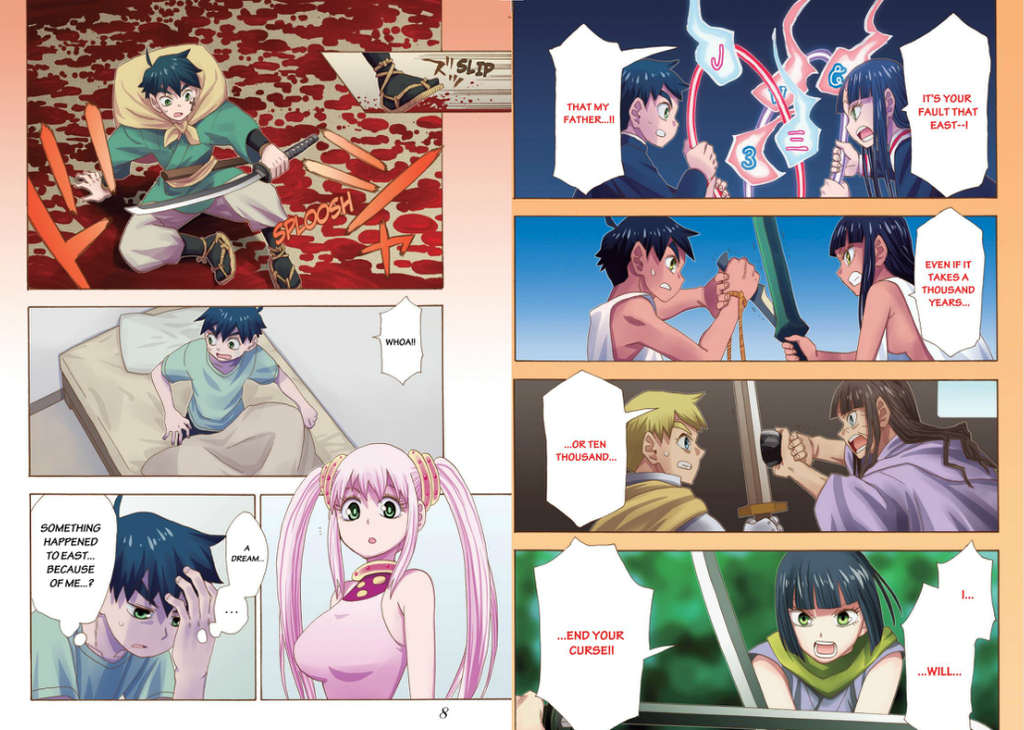Braves of the Six Flowers is the shit. The shit.
It doesn’t have anything deep to say, it’s a just rollicking good fantasy adventure story. The animation is great and the backgrounds are lush and detailed, but that would just be putting lipstick on a pig if the pace of the story did not move so quickly. Even the fanservice is mild enough to be easily forgiven, though I still think it shouldn’t be there.
I appreciate the pseudo-Aztec setting, which is not something you see everyday in anime. The story isn’t anything original – six chosen heroes must band together to defeat a demonic invasion – but the series just puts everything together in a satisfying way. In this way it reminds me of Argevollen, though this show looks a lot better.
Praising a work as competent may sound like faint praise, but producing art that’s merely satisfactory is not as easy as it may seem. I was particularly aware of this fact since I’d watched Chaos Dragon before turning to this show.

Chaos Dragon has an interesting pedigree. The project was spawned from the tabletop roleplaying game sessions of a group of top writers. However fun playing that RPG was, it did not translate very well to a similarly enjoyable anime. I found the first episode cliched and uninteresting. There’s a country, it was conquered and partitioned, there are rebels fighting the occupation and there’s a dragon killing people. Ho hum. The bad guys were cartoonishly evil, the hero was impossibly good, the tragic origin was predictable, and the politics was naive and simplistic. Plus the animation was so-so.
I realize that black and white morality and naive politics are prevalent in much fantasy fiction, but just because something happens a lot doesn’t mean I have to like it. During the viewing my mind kept wandering as I added to my mental list of criticisms. I won’t be watching any more episodes.
Anyway, there you have it. One hit and one miss from the current anime season.

